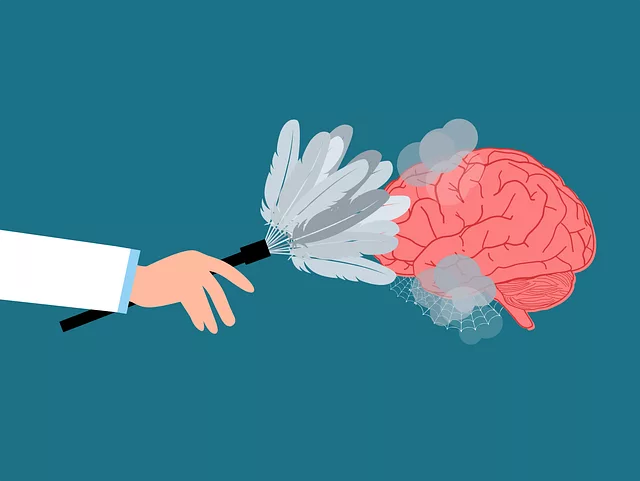Kaiser Permanente's comprehensive mental health coverage in Louisville plays a pivotal role in crisis intervention through its specialized Crisis Intervention Teams (CITS). These teams offer swift support, focusing on assessment, de-escalation, and social skills training. With programs targeting self-esteem, burnout, and stress, Kaiser promotes open conversations about mental health. Their training programs emphasize education, risk management, and resilience building, empowering staff to handle crises effectively within diverse healthcare settings. Community initiatives leveraging this coverage have seen successful CIT implementations, leading to improved public safety and individual well-being in Louisville.
Crisis intervention teams (CITs) play a pivotal role in mental health care, providing immediate support during crises. This article explores the significance of CIT training programs and highlights successful initiatives. We delve into Kaiser Permanente’s approach to mental health coverage in Louisville, showcasing how comprehensive training empowers frontline workers to effectively manage crisis situations. By examining real-world impact, we demonstrate that investment in these programs yields tangible benefits for communities, with a focus on Louisville’s inspiring success stories.
- Understanding Crisis Intervention Teams: A Vital Resource in Mental Health Care
- Kaiser Permanente's Approach to Mental Health Coverage in Louisville
- Essential Components of Effective Crisis Intervention Team Training Programs
- Real-World Impact: Success Stories from Louisville's Community Initiatives
Understanding Crisis Intervention Teams: A Vital Resource in Mental Health Care

Crisis Intervention Teams (CITS) are a vital resource in mental health care, offering swift and effective support to individuals facing severe crises. These teams, often composed of specialized professionals, play a crucial role in enhancing the well-being of people struggling with mental health issues. In Louisville, where Kaiser Permanente mental health coverage is accessible, CITS have become an essential component of the healthcare system. They provide immediate assistance, helping individuals navigate through challenging situations and fostering inner strength development.
The training programs for these teams focus on various aspects, including crisis assessment, de-escalation techniques, and social skills training. By equipping team members with the necessary tools, these initiatives ensure that those in need receive appropriate care. Mental wellness is at the core of CITS’ mission, aiming to promote resilience and support individuals in their journey towards stability and recovery.
Kaiser Permanente's Approach to Mental Health Coverage in Louisville

Kaiser Permanente, a renowned healthcare provider, has made significant strides in addressing mental health concerns within its Louisville community. Their comprehensive approach to mental health coverage aims to destigmatize and demystify psychological well-being. By offering a range of services, they cater to diverse individual needs, ensuring that everyone has access to support. This includes on-site counseling sessions, group therapy programs, and initiatives focused on self-esteem improvement, burnout prevention, and stress reduction methods.
The organization’s strategy involves educating both patients and staff about mental health, fostering an environment where conversations around these topics are open and encouraged. Through tailored programs, Kaiser Permanente Louisville empowers individuals to take charge of their mental well-being, promoting a healthier and more resilient community.
Essential Components of Effective Crisis Intervention Team Training Programs

Effective crisis intervention team (CIT) training programs are integral to equipping healthcare professionals with the skills needed to manage mental health crises in diverse settings, especially within a system like Kaiser Permanente mental health coverage Louisville. A comprehensive CIT training program should incorporate several key components to ensure its success and sustainability.
Firstly, these programs must focus on providing thorough Mental Health Education Programs Design. This involves teaching participants about various mental health disorders, crisis intervention techniques, and de-escalation strategies. Moreover, integrating Risk Management Planning for Mental Health Professionals is crucial to equip teams with risk assessment skills, ensuring they can identify potential hazards and implement appropriate safety measures. Additionally, building resilience among team members through structured activities and discussions enhances their ability to handle challenging situations. These components collectively contribute to fostering competent and confident CITs capable of delivering effective interventions in Louisville’s healthcare landscape.
Real-World Impact: Success Stories from Louisville's Community Initiatives

In Louisville, Kentucky, community initiatives have been instrumental in showcasing the real-world impact of crisis intervention team (CIT) training programs. Organizations like Kaiser Permanente, known for its comprehensive mental health coverage, have played a pivotal role in empowering local communities to better manage and prevent mental health crises. Through collaborative efforts, these initiatives have successfully trained and deployed CIT teams across various neighborhoods, leading to significant improvements in public safety and individual well-being.
One notable success story involves a program that focused on integrating self-care routine development for better mental health alongside burnout prevention strategies. This holistic approach not only equipped participants with the skills to recognize and respond to crises but also fostered a culture of resilience within communities. The positive outcomes, including reduced emergency room visits and improved mood management, underscore the transformative power of targeted interventions. These initiatives serve as a testament to how community-driven programs can effectively address mental health challenges, ultimately enhancing the overall well-being of Louisville residents.
Crisis intervention team (CIT) training programs are a game-changer in mental health care, particularly in communities like Louisville where Kaiser Permanente has made significant strides. By equipping first responders, healthcare professionals, and community members with the necessary skills, these programs ensure swift and effective support during crises. The success of Louisville’s initiatives highlights the profound impact of comprehensive CIT training, which includes education, role-playing scenarios, and ongoing debriefings. This approach not only enhances the quality of care but also fosters a culture of empathy, resilience, and collective responsibility in addressing mental health challenges within the community.






